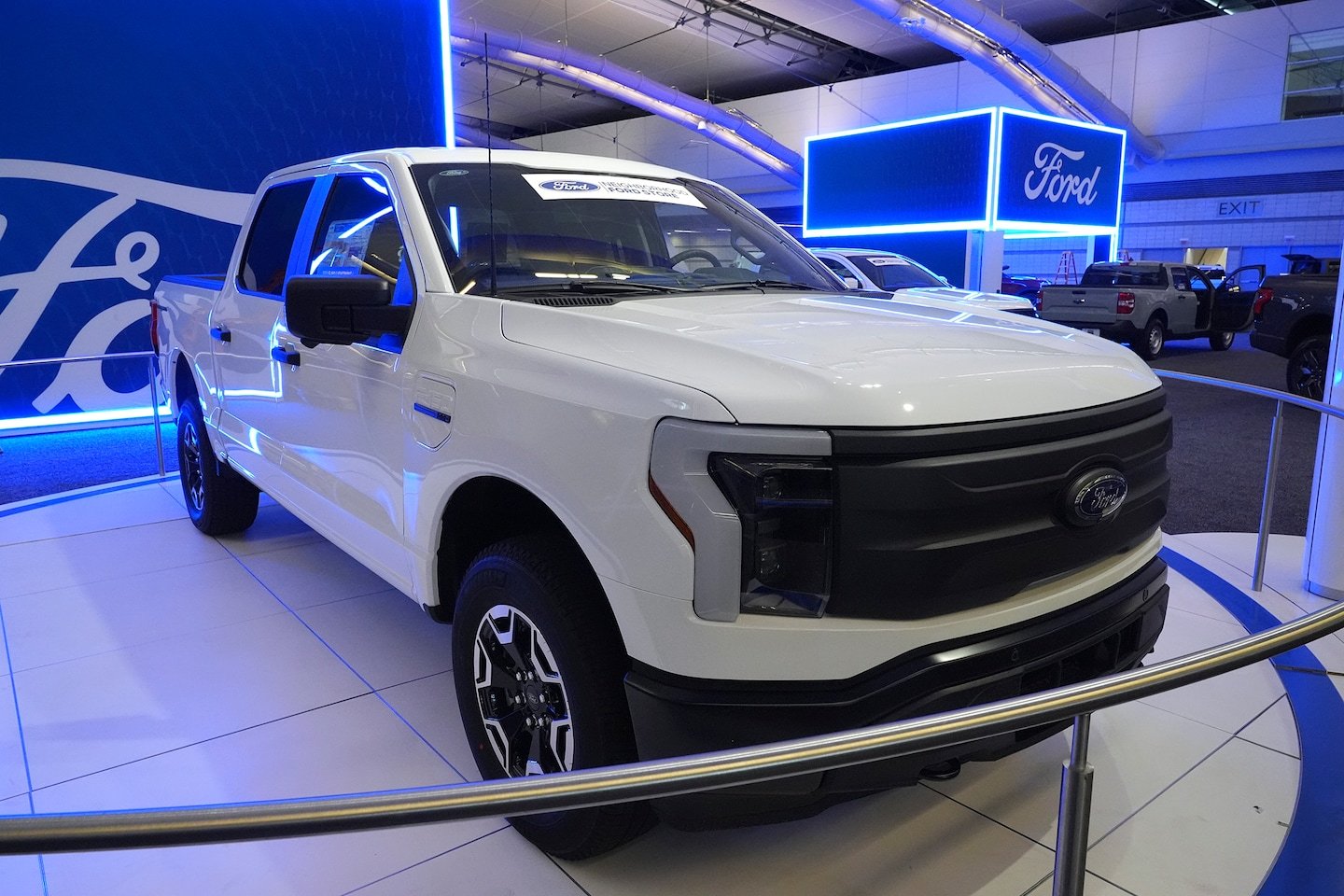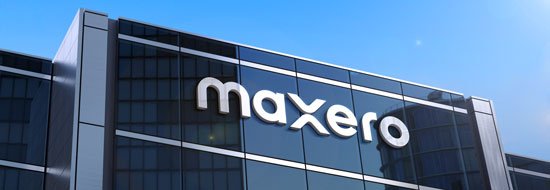“I get the concept of [EVs] and I think it’s a good idea. It’s probably about ten years too soon,” he said from the sidelines of the show, citing a lack of charging infrastructure as his biggest concern. “I think everybody’s kind of jumping the gun.”
That view, common among show attendees and consumers nationwide, is taking the shine off the EV transition three years after automakers and the Biden administration barnstormed the United States with grand electric plans.
Sales of fully electric vehicles are still growing much faster than gasoline-car sales in the United States — they were up 49 percent last year, to 1.1 million vehicles, according to Wards Intelligence.
But automakers say growth has cooled lately amid lower gasoline prices and persistent worries about a lack of charging stations, contributing to a 10.8 percent drop in the average EV price over the past year, to $55,353, according to Cox Automotive data.
The start of the year has been rough. Mercedes-Benz this week delayed its electrification goals by up to five years. Ford slashed the price of its electric Mustang Mach-E to compete with Tesla’s Model Y, which got its own price cut this month. Hertz has begun jettisoning some 20,000 EVs from its global fleet. And EV ads from Detroit automakers were noticeably absent from the Super Bowl for the first time in several years.
Growing consumer caution is forcing the Biden administration to rethink some of its big ambitions for a green transition. The Environmental Protection Agency is considering relaxing regulations that would have required automakers to rapidly scale up production of electric vehicles, people familiar with the matter told The Washington Post this week. The news came after thousands of auto dealers wrote to the administration complaining that EVs were piling up on their lots.
It’s not all bad news. Plug-in hybrids seem to be catching on faster with consumers because they combine some electric-only range with the security of a backup gasoline engine, dealers and automakers say. They were the fastest-growing light vehicle sold in the United States last year, rising 60 percent to 293,558 vehicles, according to Wards Intelligence. And analysts expect fully electric vehicles to continue gaining market share this year, probably breaking into a double-digit percentage of new-car sales.
White House officials say EV sales have tripled since President Biden took office, with the help of federal tax credits for buyers. They add that drivers will see more progress with EV charging this year as federal funds for charger construction start to bear fruit.
Biden’s agenda “makes EVs more affordable, helps Americans save money when driving, and makes EV charging accessible and convenient,” White House spokesman Angelo Fernandez Hernandez said in a statement. The administration has also welcomed plug-in sales as helpful toward lowering emissions.
Some Pittsburgh auto show attendees said they were already proud EV owners or ready to take the plunge. Checking out an electric Nissan Ariya, David Kennedy said he loves driving his fiancée’s Tesla and plans to go electric next time he buys a vehicle.
“I would not knowingly or intentionally go back to a gas vehicle,” he said. “It’s pretty gross, all the exhaust coming out of all these cars everywhere.”
But many others expressed concerns. Browsing with his sons, Mark Hanrahan said his views on EVs have grown more positive over time: He no longer thinks they are “wimpy.” But he isn’t convinced there’s enough public charging to make long road trips.
“I think they’re the future, but I wouldn’t invest in one, just because we have six kids, and I just don’t think they’re practical enough,” said Hanrahan, who has a GMC Sierra truck and a minivan at home.
Chuck McCoy said he felt it was “too soon” for EVs, saying he didn’t think they could handle the hills of his hometown of Weirton, W.Va.
Tom Phillips said he considered buying an electric BMW but worried about freezing winter weather, which can sap EV batteries. “If you go out in the Midwest or you go up into Canada, it’s not going to cut it,” he said.
Mark Z. Jacobson, a renewable-energy expert and engineering professor at Stanford University, said cold weather does reduce EV range by up to roughly 20 percent, but that it also reduces gasoline car range — and raises pollution emissions from gas vehicles. Concerns about EVs being able to handle hills are unfounded, he added.
“The first thing I noticed was that [my EV] accelerated up the steep hills of San Francisco so much easier than any gasoline car I had ever driven,” Jacobson said. Better public education is needed to flag EV benefits, he added, including that they eliminate all tailpipe emissions and can save drivers up to $30,000 in fuel costs over 15 years.
Still, many auto show attendees said they were far more open to buying hybrids. Dylan Higinbotham said he has too much “charging anxiety” for a full EV but loves his new plug-in hybrid, which has drastically cut his monthly fuel bill.
Dealers in several states told The Post that plug-in hybrids are picking up steam with buyers not ready to completely part with gasoline engines. “I think a lot of people went from one extreme to the other and got interested in fully electric and then maybe realized that’s too big a jump,” said Shane Collins, a Ford and Nissan dealer in Louisville.
That trend has General Motors scrambling to add plug-in hybrids to its lineup, even as it delays some production of fully electric pickup trucks. This year was the first that GM didn’t air an EV ad during the Super Bowl since 2021, when it launched its electric ambitions in a commercial starring Will Ferrell.
CEO Mary Barra said last month GM is still committed to ending gasoline-powered vehicle sales in 2035. “But in the interim, deploying plug-in technology in strategic segments will deliver some of the environmental benefits of EVs as the nation continues to build its charging infrastructure,” she said.
Other signs of EV deflation have cropped up. Hertz last month said it would sell one-third of its global EV fleet, or about 20,000 cars, citing weak demand and the expense of repairing the vehicles.
Tesla has slashed Model Y prices in the United States by more than 21 percent over the past year, to less than $50,000 in January, amid growing competition and periods of weaker demand.
“Since most people don’t love to buy cars in the middle of winter, Tesla is offering a $1,000 incentive to do so,” Tesla CEO Elon Musk posted on X this month, announcing another price cut to the Model Y.
Even in California, long an EV stronghold, sales of fully electric models fell by 10 percent from the third to fourth quarter last year, to 89,933 vehicles, according to the California New Car Dealers Association. EVs still made significant inroads in the state during 2023 as a whole, rising to 21.4 percent of new-vehicle registrations, from 16.4 percent a year earlier.
Kristin Dziczek, a policy adviser at the Federal Reserve Bank of Chicago, said the electric market appears to be hitting a rough patch as it tries to move from early adopters and tech enthusiasts to regular consumers.
Improving charging and battery range and making EVs more affordable will be essential to widening the appeal, she told an automotive conference in Detroit last month. Regular consumers “won’t have much patience for inconveniences associated with the technology,” she said. “It needs to work and make their life better at a reasonable cost.”
The bipartisan infrastructure law, which Biden signed two years ago, provided $7.5 billion to state and local governments over five years to subsidize charger construction, a campaign that is only now beginning to lead to the opening of new charging stations. Experts say it has taken this long because charging providers have to jump through many hoops to build a station, including working with local utilities to secure power, receiving permits, and buying and installing hardware.
For now, the U.S. network relies heavily on Tesla. There are about 35,000 public fast-charging ports in the United States, about tw0-thirds of which belong to Tesla, according to Atlas Public Policy.
But other automakers are boosting their charging investments. GM, Honda, Hyundai and several others last summer said they are banding together to install 30,000 new fast chargers in North America, with the first stations expected this summer. And Mercedes has pledged to invest more than $1 billion with a joint-venture partner to install 2,500 chargers in the United States and Canada by 2030.
“We’re all aware of the problem that we’re trying to solve … about 50 percent of prospective EV buyers still are not buying electric vehicles because of charging,” the head of the Mercedes effort, Andrew Cornelia, said during a media event this month.
Tom Lewis, a retired steelworker browsing at the Pittsburgh auto show, said he’s sticking with gas-powered models as he shops for a new vehicle. Electric technology and charging availability is “not there yet,” he said. “Let somebody else deal with the headaches.”
“Down the road, before I’m dead, I’ll bet you we have an electric vehicle,” he added. “But I’m not dying yet.”
[ad_2]
Source link




